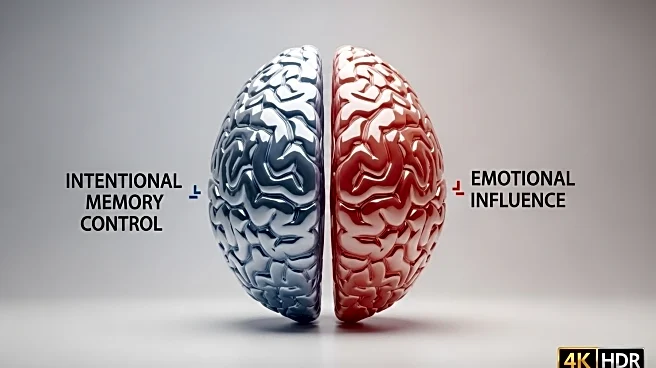What's Happening?
A new study has revealed that intentional memory control, or deciding what to remember or forget, is more powerful than emotional influence in forming long-term memories. Participants were more likely to recall words they were instructed to remember than those with emotional weight, although emotion sometimes strengthened recall or caused false memories. The study involved participants completing a directed forgetting paradigm with neutral and negatively valenced words, followed by immediate recognition and delayed free recall. Interestingly, sleep itself did not enhance memory performance, though certain sleep brain waves, such as sleep spindles, were linked to better recall of emotional material.
Why It's Important?
These findings challenge the traditional understanding of memory formation, emphasizing the role of conscious intention over emotional salience. This has implications for educational strategies, therapeutic practices, and cognitive training programs that aim to enhance memory retention. By understanding the mechanisms that prioritize memory consolidation, stakeholders can develop more effective methods for improving learning outcomes and managing emotional memories. The study also highlights the potential for leveraging sleep physiology to support selective memory consolidation.
What's Next?
Further research is needed to explore the interactions between sleep, emotion, and intentional memory control. This could lead to new approaches in cognitive therapy and educational techniques that harness the power of intention in memory retention. Researchers may also investigate the role of different sleep stages and brain wave activities in memory consolidation, potentially leading to targeted interventions that optimize sleep for better cognitive performance.
Beyond the Headlines
The study raises questions about the ethical considerations of manipulating memory through intentional control, particularly in therapeutic settings. It also suggests a need to explore the cultural dimensions of memory practices, as intentional memory control may vary across different cultural contexts. Understanding these nuances could inform more culturally sensitive approaches to memory enhancement.










